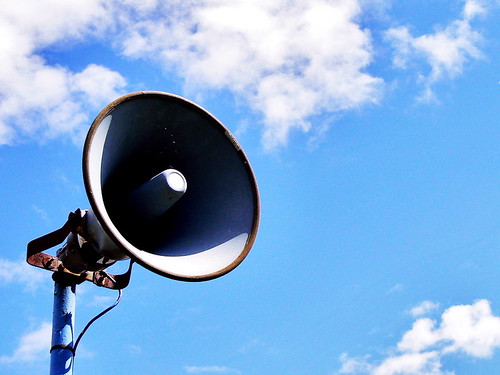Why you should start marketing early
June 26, 2011starting up

I’ve been thinking a lot recently about when the right time is to start marketing a startup. In my previous startup, we were hesitant to attempt to get press early. We were always waiting until our product was ‘ready’. I think this is probably quite a common thought process.
With the aim to dispel some of the fears and highlight benefits of marketing early, I want to share some of my reflections on early stage marketing based on what I’m doing with my current startup, Buffer.
Why we hesitate to market at an early stage
As with anything, it is easy to think about reasons not to start marketing a startup.
We think the product isn’t ready for marketing
At an early stage, you know for sure that things such as your signup funnel and onboarding process can be improved a lot. On top of that natural fact, with the lean startup movement so widespread now we’re all encouraged to release our products even earlier. It is easy to think that marketing should come when our product is perfect, but I believe we put ourselves at a disadvantage by waiting.
We think we only get one chance
I think a very valid fear when starting to consider marketing a startup is that you only get one chance with people you reach. The idea that someone will make their final decision based on their first impression is very believable. We’ve found out this is far from the case.
We think we’ll ‘run out’ of people
I’ve found with Buffer that sometimes we reach a kind of plateaux with our rate of signups, and whilst the real solution is to try new ways to market our idea, or to try taking our existing methods to new levels, it is quite easy to feel like we’ve hit some kind of saturation point and won’t be able to reach more people. As you’ll find out below, we now know we’ll never reach a point where we can’t sign up more people.
Why we should market even when it feels too early
I’ve realised over time, that even whilst releasing our products earlier, we should still aim to market our startup very early. I believe that what feels like “too early” is in fact a great time to start marketing. Most people have probably delayed much longer than they should.
The best way to improve the product is to have usage
Matt Mullenweg, the Founder of Wordpress, put it better than I ever will:
Usage is like oxygen for ideas. You can never fully anticipate how an audience is going to react to something youve created until its out there. That means every moment youre working on something without it being in the public its actually dying, deprived of the oxygen of the real world.
What we’ve found with Buffer is that by treating the marketing more as a way to trigger conversations than a “broadcast” channel, marketing has been by far the best way to hone our pitch and improve the product too. We had to experiment a lot with our pitch and we had many things to fix in the product, It was much easier to improve quickly due to the fact my co-founder Leo was writing several articles per week about Buffer for a variety of blogs.
People don’t always sign up the first time they hear about your product
Once we started to succeed in getting Buffer featured in quite a number of blogs, we found through the conversations in the comments many people had already come across Buffer. What was happening was that whilst some people would sign up the first time they heard about Buffer, others would wait until they had heard about Buffer a few times.
I now think that quite a large number of people don’t sign up to services the first time they hear about them. For that reason, we should aim to be getting our products mentioned widely and frequently. People have a kind of tipping point where they decide “now I’ll give it a go”. You have to work to get there.
You won’t ‘run out’ of people
I recently realised we will never reach a point where we can’t sign up more people to Buffer. Since we are currently primarily a tool for Twitter users, you just have to consider how fast Twitter is growing to realise we will never have the saturation problem.
To illustrate this further, take a look at the following chart which shows Evernote’s signups stats six months ago:

Six months ago Evernote were signing up around 2000 new users every hour. They’ve also recently announced that it has gone from six million registered users at the time of this chart to over ten million registered users today. I predict Evernote could be signing up around 100,000 new users per day. You only get that kind of growth by continually working at your marketing.
I now believe that when building a startup as much focus should be put on marketing and customer development as on product development.
Photo credit: John Wardell
